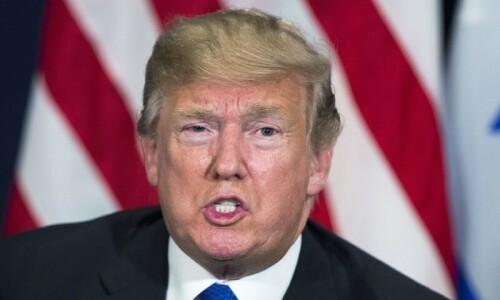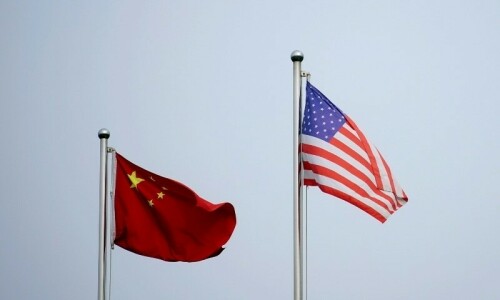Pakistan will not send ground troops as part of Saudi-led military alliance: Aziz
ISLAMABAD: Adviser to the Prime Minister on Foreign Affairs, Sartaj Aziz, on Tuesday said Pakistan will not send ground troops to Saudi Arabia or any other country after having joined the 34-state Islamic military alliance led by Saudi Arabia.
In a briefing to the National Assembly Foreign Affairs Committee at the Parliament House, Aziz said all matters between Pakistan and Saudi Arabia have been settled.
He said Pakistan will be sharing intelligence with Saudi Arabia to counter terrorism.
Related: Pakistan surprised by its inclusion in 34-nation military alliance
Aziz told the committee that Pakistan is playing its role to diffuse tensions between Iran and Saudi Arabia.
“An emergency meeting of OIC foreign ministers has been summoned in Jeddah where Pakistan would present important proposals to reduce Iran-Saudi tensions.”
The adviser said Pakistan wishes for peaceful settlement of the Syrian conflict and supports all efforts for resumption of dialogue.
The chairman of the committee, Awais Leghari, told media personnel after the briefing that the committee lauded Pakistan’s balanced stance on the Saudi-Iran conflict.
The announcement comes just a day after Saudi Defence Minister and Deputy Crown Prince Mohammad bin Salman visited Pakistan and held meetings with army chief General Raheel Sharif and Prime Minister Nawaz Sharif.
While Gen Raheel assured Prince Mohammad bin Salman of a “strong response” to threats to his country’s territorial integrity, Prime Minister Nawaz Sharif called for resolving its crisis with Iran through diplomacy and offered Pakistan’s good offices in this regard.
“Pakistan has historically pursued the policy of promoting brotherhood among member states of the OIC. Pakistan has also always expressed its readiness to offer its good offices to brotherly Muslim countries for resolution of their differences,” the prime minister was quoted by his office as having told the Saudi deputy crown prince.
The Saudi defence minister's Islamabad visit had come just three days after foreign minister Adel bin Ahmed Al-Jubeir held meetings with PM Nawaz and army chief Gen Raheel Sharif to discuss Pakistan's role in the 34-nation military alliance.
It is not Pakistan’s policy to deploy its troops outside the country’s borders except for UN peacekeeping missions.
In the past Pakistan has twice rejected US calls for joining alliances against the militant Islamic State (IS) group on the same pretext.
Related: Pakistan welcomes Saudi-led anti-terror alliance: PM
Military alliance
Saudi Arabia last month announced the formation of a 34-state Islamic military coalition to combat terrorism, according to a joint statement published on state news agency SPA.
“The countries here mentioned have decided on the formation of a military alliance led by Saudi Arabia to fight terrorism, with a joint operations center based in Riyadh to coordinate and support military operations,” the statement said.
A long list of Arab countries such as Egypt, Qatar, the United Arab Emirates, together with Islamic countries Turkey, Malaysia, Pakistan and Gulf Arab and African states were mentioned.
The announcement cited “a duty to protect the Islamic nation from the evils of all terrorist groups and organisations whatever their sect and name which wreak death and corruption on earth and aim to terrorise the innocent.”
Iran, Saudi Arabia's archrival for influence in the Arab world, was absent from the states named as participants, as proxy conflicts between the two regional powers rage from Syria to Yemen.
Tensions between Iran and Saudi Arabia have lately exacerbated after the latter executed a prominent Shia cleric on terror charges, causing widespread condemnation. Protesters in Tehran ransacked a Saudi embassy in retaliation, resulting in Saudi Arabia and several countries from the Gulf Cooperation Council (GCC) severing diplomatic ties with Iran.
Islamic State operations and activities across the Middle East have led to military responses executed by alliances that most of the time rival each other. Syria has been battling IS and other militants with the help of Iran and Russia.
The US, which is supporting groups trying to topple Syrian President Bashar al-Assad, is meanwhile leading another alliance against IS.
Iran has led military efforts along with the Iraqi army and volunteers in the fight against IS in Iraq. The US-led alliance has been supporting ground operations against IS with their air strikes.
















































